IMPROVE WORK-PLACE CONFLICT RESOLUTION
Understanding how conflict works and learning techniques for productive conflict resolution can produce significant benefits for an organization, including increased productivity, improved bottom line, lower turnover with the accompanying human and financial cost of said turnover, better working environment with higher trust and unity, more innovation, and reduced stress.
Lest this sound like an unattainable utopia, in my observation, there is no guaranteed formula for a conflict-free environment – at work, at home, with friends, family or acquaintances. What conflict management theory can provide, however, is a way to step into a conflict with particular goals, intentions, alternatives and options in mind, so that – whatever the outcome – the individual knows what choices he or she may have.
Treatises have been written on this subject. Let me leave you with two practical and doable protocols:
Develop and use a work-place values statement
Engage outside Mediators and Conflict Management Consultants
to serve as a Mediator for the more difficult disagreements
to help you sort through your own indecision regarding the best way to proceed when faced with a difficult choice or set of choices
to provide conflict management training to your staff and you
WORK-PLACE VALUES STATEMENTS
Organizations create Mission Statements, in part, to communicate a message to the public “describing a company’s function, markets and competitive advantages; a short written statement of your business goals and philosophies. A mission statement defines what an organization is, why it exists, its reason for being.” Entrepreneur, Small Business Encyclopedia.
What if an Organization creates an internal Work-Place Values Statement (WPVS) designed to guide employee’s behavior. Such WPVS’s can be utilized during all phases of an employee’s relationship with the organization – from the hiring process, to professional development, to work performance reviews to coaching or mentoring.
Several examples may serve to illustrate the importance of WPVS’s.
First, think about an assisted living facility providing services to the elderly or infirm. Often these are not the highly paying positions. Staff is expected to oversee the daily care of people who may be ill or unable to care for themselves. Feeding, dressing, assisting with personal hygiene, providing entertainment to the clients are only some of the activities the staff must provide and do so with kindness and compassion.
Second, a large law firm is hiring first year associates. The associates are expected to work long hours, execute the assignments they are given, handle lower level legal work. Mistakes are not tolerated. The income may be high, but so is the stress to perform. Professional dress codes are expected to be the norm. Work-life balance is not a high priority.
Third, working for a non-profit organization often requires long hours. Staff organizes fund-raisers in the evenings and on weekends, which they must attend. Work-life balance can be difficult to achieve.
It is easy to see how the WPVS’s might differ among these different work environments. The WPVS essentially communicates to staff the organization’s “corporate culture” and can be used to guide, evaluate and coach the employee’s.
Imagine that you are in an interview as an employee and the interviewer, in addition to telling you about the job requirements and salary, also identifies for you the work ethic you are expected to demonstrate. What if that work ethic is not what you had in mind? The interviewer tells you that overtime is frequent and expected. You have small children or an elderly parent for whom you are responsible. You immediately know that this is not a good position for you.
Putting as much thought and time into the development of your Work-Place Values Statement as you put into your organization’s Mission Statement will undoubtedly provide you with revelations about the expectations you need to communicate to your staff. Clarity of expectation can reduce unnecessary and unproductive conflict.
MEDIATORS AND CONFLICT MANAGEMENT CONSULTANTS
Capitalizing on the best that everyone has to offer can be a tricky, time-consuming and costly process. Outside Mediators and Conflict Management Consultants provide a valuable resource to organizational leadership.
First, Mediation can be used as the first line of defense in conflict situations. When emotions are riding high and the individuals in the conflict are in their respective “stuck” places, Mediation is effective in breaking down the barriers to negotiation. Mediation can be cost effective and time efficient in a specific conflict situation.
Second, often individuals find themselves faced with difficult choice – either involving their own individual crossroads or regarding a situation with others. He or she will be simply confused as to the best way to proceed. It may seem obvious, but this is a conflict. A Mediator or Conflict Management Consultant can help an individual sort through the choices to develop a list of options or alternatives and, if appropriate, a negotiation strategy.
Thirdly, most experts in the subject of work-place conflict counsel organizational leaders to include conflict resolution training for themselves and for their staff. The organization may wish to provide on-site or off-site conflict management training to select staff or by department. Such training can be custom-designed to address the particular needs of an organization. This suggestion is deliberately vague, because every organization’s needs are different and should be addressed as such.
If you would like assistance in creating a Work-Place Values Statement or learning more about how Mediation and Conflict Management Consulting can improve morale, increase effectiveness and efficiency and add to the bottom line, contact Keystone Conflict Solutions LLC at rebecca@kcsmediation.com or (404) 314-7228 to learn if Mediation or Conflict Management Consulting might be beneficial in creating a smooth and efficient operation.





